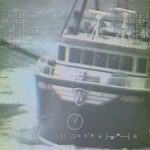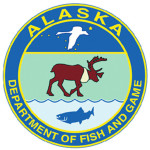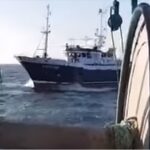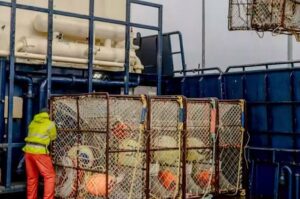Daily Archives: July 5, 2018
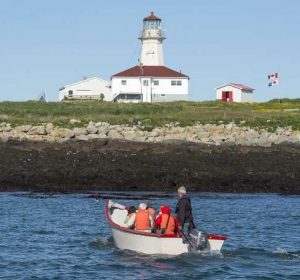
Maine lobster fisherman says U.S. border patrol has been boarding American boats, not just Canadian
U.S. border officials have not been deliberately “harassing” Canadian fishing boats in disputed Atlantic waters — agents have boarded numerous American vessels, too, as part of an unprecedented recent operation, says a prominent Maine lobsterman. John Drouin said his and his two sons’ boats and those of other American fishermen have all been stopped in the past couple of months by U.S. Border Patrol vessels, something he’s rarely seen in 40 years plying the waters. “It baffles me just as much as anybody else,” said Drouin, a member of Maine’s lobster advisory council. “I have no clue why they’re here, spending taxpayers’ money and resources … (But) for whatever reason, they now have a presence.”>click to read<22:32

Coast Guard, good Samaritan rescue 2 fishermen after boat capsizes in the Gulf
The Coast Guard and a good Samaritan rescued two boaters Thursday after their 25-foot boat capsized 50 miles west of Naples. Rescued were Frederick Cunningham, 42, and James Nipper, 48.
At 5:56 a.m., watchstanders at Coast Guard Sector St. Petersburg received a Mayday via VHF-FM radio channel 16 from a man stating, “Mayday, Mayday – this is the vessel…” but the transmission was lost. Two additional calls from the same man were received but no usable information could be heard. At 7:48 a.m., Coast Guard Seventh District command center watchstanders received an Emergency Position Indicating Radio Beacon alert from the 25-foot commercial fishing boat. >click to read<19:16
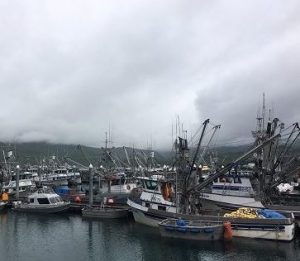
Chignik fishermen stuck ashore as sockeye run fails
Communities around the Gulf of Alaska are struggling with low sockeye returns, and villages near the Chignik River are no different. The region is experiencing its weakest recorded run in the last in 50 years. Fishermen are stuck waiting for a commercial opener,,, There’s really only one thing to talk about in Chignik Bay these days — where are the sockeye? “Shock is pretty much the guaranteed feeling of most people as kinda everybody walking around dazed.” according to Ben Allen, a local fisherman. It’s to the point where residents have pulled their subsistence nets voluntarily to try and get every salmon they can up the Chignik River.,, And, like other nearby communities, red salmon is the main source of income that keeps the lights on in the village. >click to read<18:12
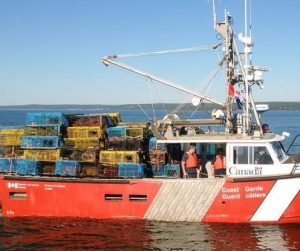
DFO Investigation: traps placed in right whale protection zones, Meanwhile In Nova Scotia, 172 traps seized
Canada’s Department of Fisheries and Oceans (DFO) are investigating whether 33 licence holders violated measures meant to protect North Atlantic right whales. The DFO confirmed that they’ve launched the investigations into licence holders after fishing traps were set in areas closed to protect the endangered species of whales. Canada has closed several fishery zones in the Gulf of St. Lawerence,,, >click to read< – The Federal Fisheries department says they’ve seized 172 lobster traps in Nova Scotia. The Department of Fisheries and Oceans (DFO) issued the statement on its Twitter account, saying that its detachment in Digby, N.S., seized the traps after harvesters violated the Fisheries Act. >click to read< 15:29

Trump Effort to Lift U.S. Offshore Wind Sector Sparks Interest from Europe
The Trump administration wants to fire up development of the U.S. offshore wind industry by streamlining permitting and carving out vast areas off the coast for leasing – part of its ‘America First’ policy to boost domestic energy production and jobs. The Europeans have taken note. The drive to open America’s offshore wind industry has attracted Europe’s biggest renewable energy companies, who see the U.S. East Coast as a new frontier after years of success across the Atlantic.,,, “This would be American produced energy, and American jobs,” said Vincent DeVito, energy policy advisor to Interior Secretary Ryan Zinke. “It fits well with the America First agenda.” >click to read<14:32
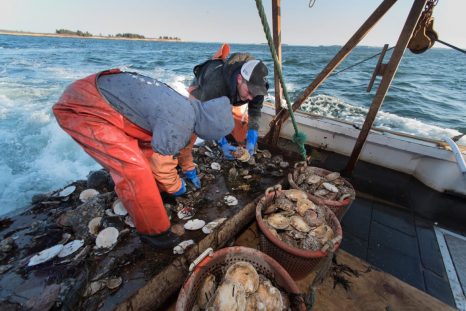
Forget Lobster: The Scallop Is the Real Seafood King
When I tell people that I’m a part-time resident of Maine, I often get an enthusiastic, “Wow, you must get sick of lobster.” And, yes, it’s true. I do get sick of lobster. But not from eating too much. I get sick of lobster cultists, that roving band of hard-shelled Hare Krishnas who loudly express devotion to the crustacean as they wander the Maine coast in search of shrines they call “pounds.”,,, The central tragedy of their endless rovings is the long and pernicious shadow they cast over the region’s true and absolute delicacy. I am talking, of course, about big, flavorful sea scallops, which are the north’s bona fide maritime royalty.,,, Fundy scallops are massive; some are the size of filet mignons. Often, two or three scallops per person are enough for dinner. >click to read<12:56
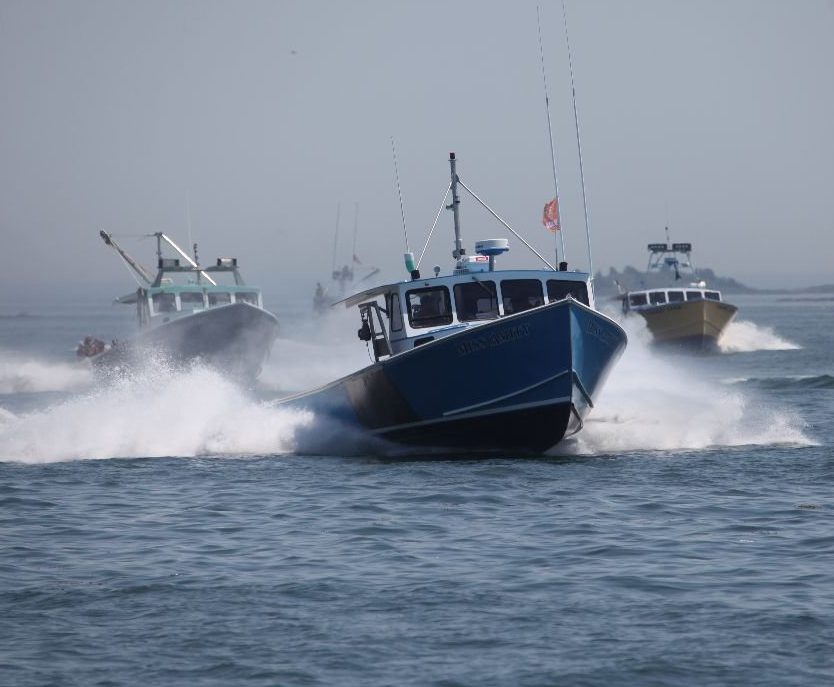
Moosabec Reach Lobster Boat Races are a speed extravaganza
Historically, the Moosabec Reach Lobster Boat Races have been held, in most years at least, on July 4, timed to coincide with Jonesport’s holiday festivities. Historically, two things were virtually assured: a great parade and dungeon-thick fog that delayed the start of the races — occasionally for days. Because the holiday falls on Wednesday this year, the races were shifted to Saturday, with astounding results. There was no fog on Moosabec Reach, and, according to Maine Lobster Boat Racing Association President Jon Johansen, 101 boats registered to compete, perhaps the biggest fleet in the history of the event, and the races actually started on time. >click to read<10:38
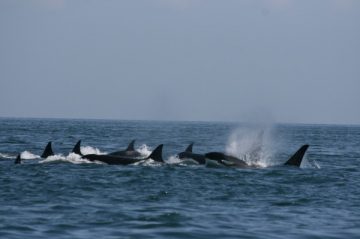
Mike Hicks: Fishery closure would be devastating
In an attempt to stabilize the populations of the southern and northern killer whales, the federal Department of Fisheries and Oceans is requesting feedback on its draft proposal to permanently close the Swiftsure and Laparuse banks for recreational and commercial fishing. This closure would devastate the coastal communities of Port Renfrew, Bamfield, Port Alberni, Ucluelet and Tofino and every recreational and commercial fisherman who earns their livelihood or enjoys their recreational pastime in what is considered one of the greatest accessible salmon and halibut fishing grounds in North America. >click to read<09:42


































